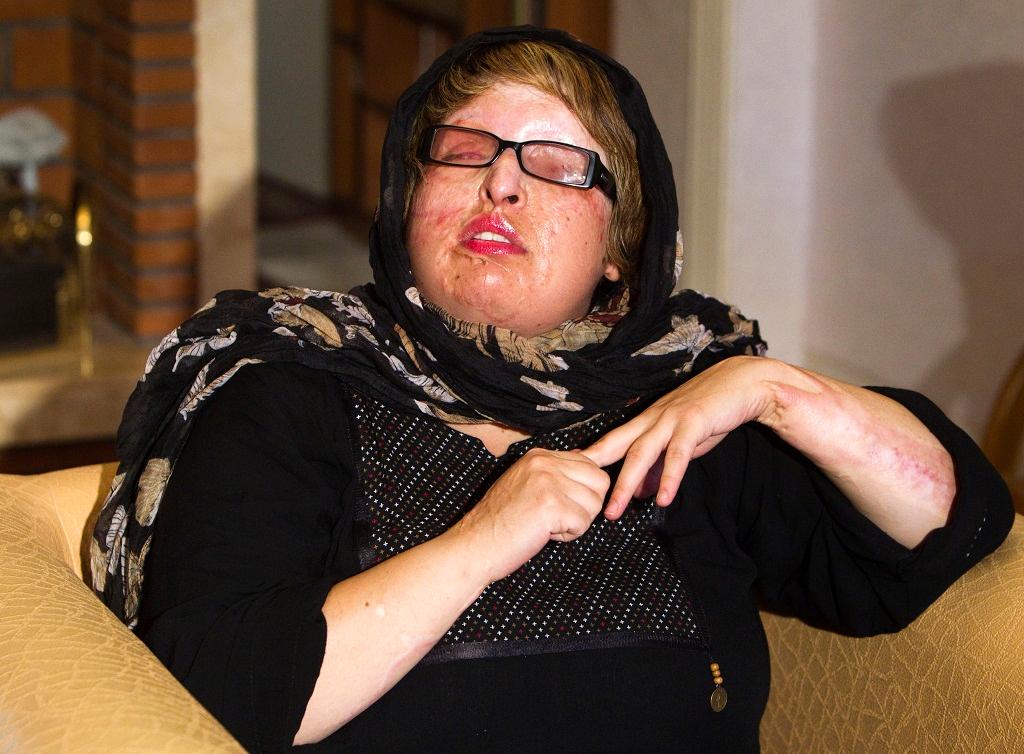Iranian woman blinded, disfigured by acid pardons attacker (VIDEO)
The Iranian woman was attacked in 2004 after she refused an offer of marriage, leaving her severely disfigured.
An Iranian woman who was disfigured and blinded in an acid attack in 2004 said Sunday that she stopped an "eye for an eye" punishment for her attacker at the last minute because "such revenge is not worth it," according to CNN.
Ameneh Bahrami had demanded qisas, a retributive form of justice under Sharia law that is rarely used, but a report said she gave up that right at the last minute, BBC News reported.
In 2008, a court supported Bahrami's demand that Majid Movahedi be blinded as punishment for attacking her and blinding her. Movahedi threw acid in Bahrami's face and blinded her when she rejected his offer of marriage seven years ago. She was disfigured and blinded in the attack.
A doctor was going to drop acid under legal supervision into Movahedi's eyes on Sunday, according to Fars News Agency, to punish him for the acid attack, CNN reported.
Bahrami halted the action only minutes before it was carried out, and Movahedi had been given an anesthetic, she said.
Global human rights groups had asked Bahrami, who had requested the eye for an eye justice in the court, to pardon her attacker, according to the Guardian.
The Guardian reported:
"I feel very good. I'm happy that I pardoned him," Isna quoted her as saying. "For seven years I've been trying to pursue retribution and to prove that the punishment for an acid attack is retribution but today I decided to pardon him. This was my right but in future the next victim might not do the same."
Bahrami asked instead for financial compensation on Sunday, an option she had been unwilling to consider before.
Restitution in a case like this is about $200,000, according to Bahrami, but because she is a woman, the law says she can receive only half of that, the Guardian reported. She has requested a meeting with lawmakers to dispute that, she said. She hopes to get awarded the full amount, which she plans to use for her medical treatment.
An Iranian court convicted Movahedi in 2008 of attacking Bahrami with the acid, after she had rejected him for two years.
Bahrami asked the court to sentence the man to the same fate he had inflicted on her, and the court agreed, citing Islamic law.
The sentence was scheduled to be carried out in May 2011, but it was postponed when Amnesty International protested against it on the grounds of cruelty.
Every day, reporters and producers at The World are hard at work bringing you human-centered news from across the globe. But we can’t do it without you. We need your support to ensure we can continue this work for another year.
Make a gift today, and you’ll help us unlock a matching gift of $67,000!
